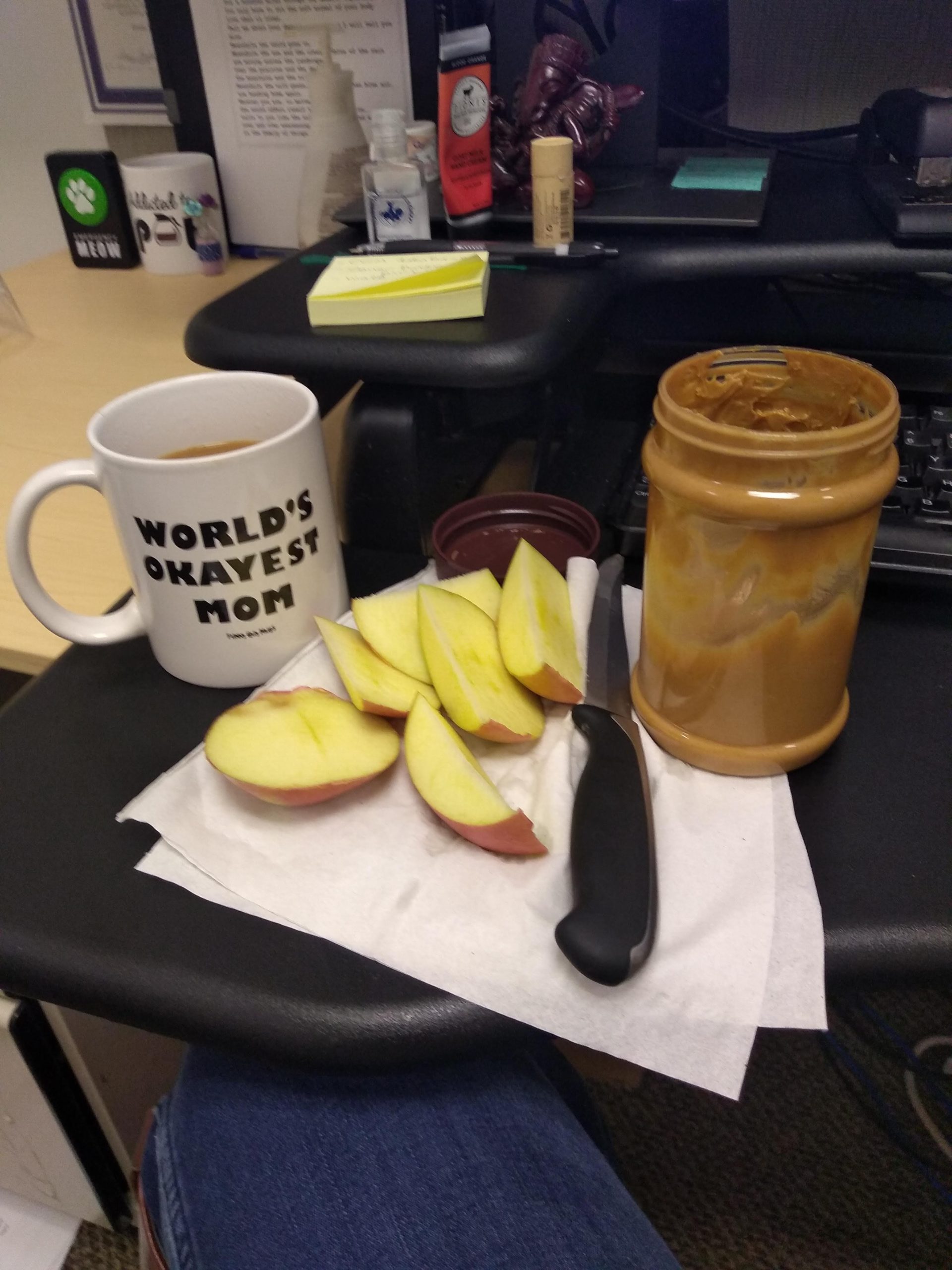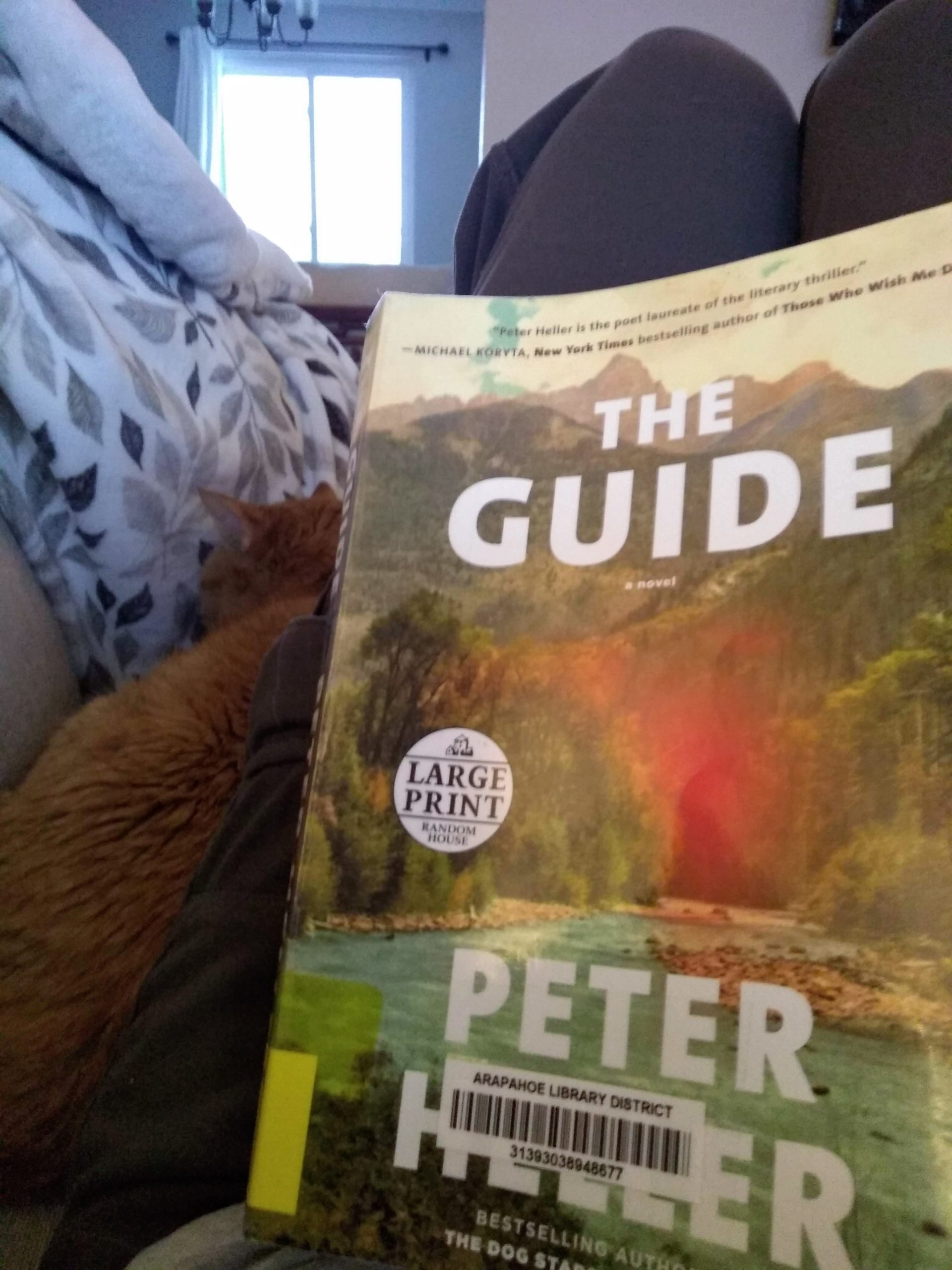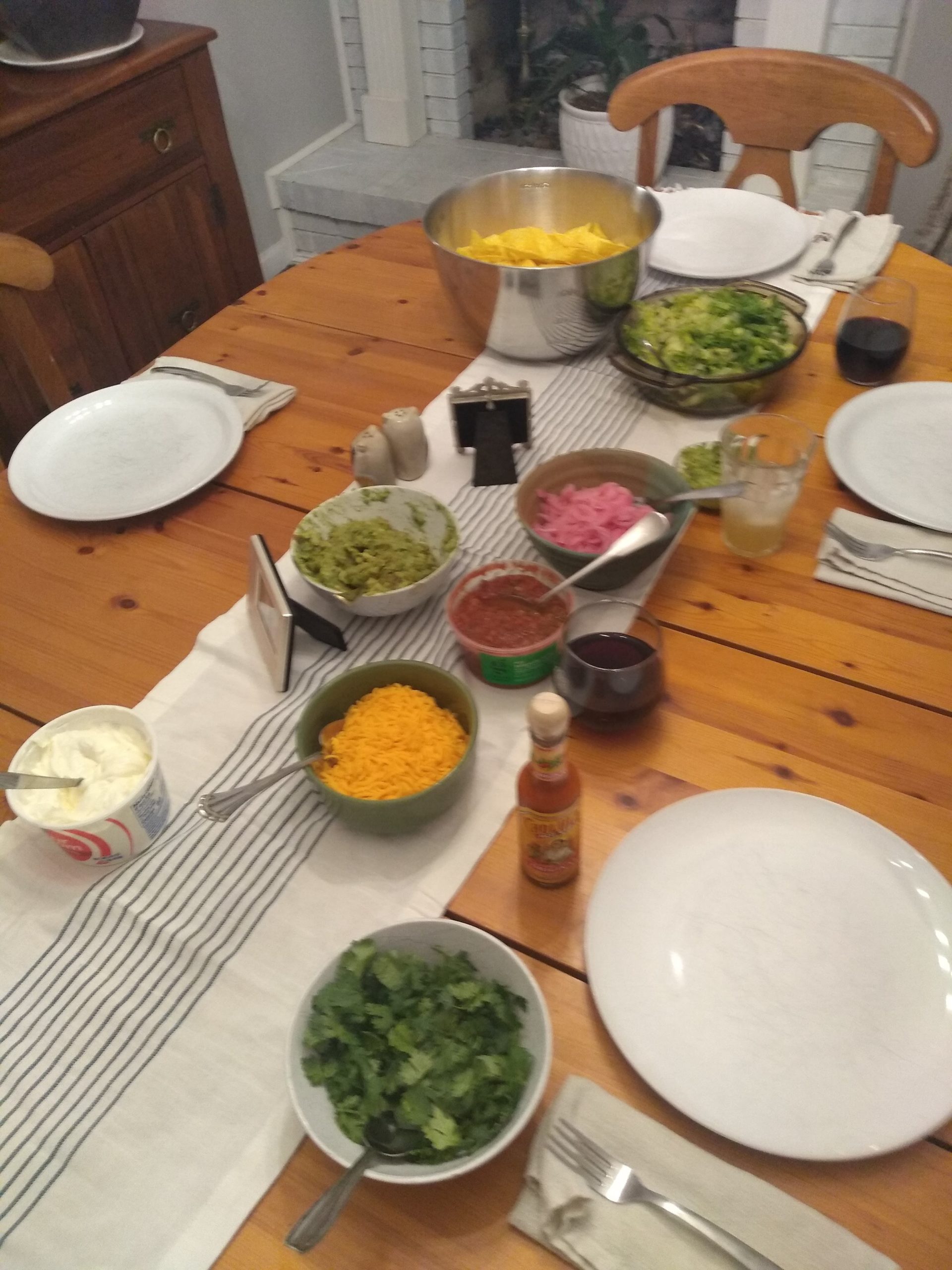Leigh is a diabetes educator living in Denver, CO. Her children are on the cusp of adulthood and she’s looking around her soon-to-be empty nest, considering her options. She’d like to downsize to a smaller home in her same Denver neighborhood and is interested in exploring the possibility of buying a second home in The Dominican Republic. Leigh wants to continue her work, a passion she feels called to, but would enjoy reducing her hours. Let’s help Leigh figure out this next chapter of her life!
What’s a Reader Case Study?
Case Studies address financial and life dilemmas that readers of Frugalwoods send in requesting advice. Then, we (that’d be me and YOU, dear reader) read through their situation and provide advice, encouragement, insight and feedback in the comments section.
For an example, check out the last case study. Case Studies are updated by participants (at the end of the post) several months after the Case is featured. Visit this page for links to all updated Case Studies.
The Goal Of Reader Case Studies
Reader Case Studies intend to highlight a diverse range of financial situations, ages, ethnicities, locations, goals, careers, incomes, family compositions and more!
The Case Study series began in 2016 and, to date, there’ve been 78 Case Studies. I’ve featured folks with annual incomes ranging from $17k to $200k+ and net worths ranging from -$300k to $2.9M+.
I’ve featured single, married, partnered, divorced, child-filled and child-free households. I’ve featured gay, straight, queer, bisexual and polyamorous people. I’ve featured women, non-binary folks and men. I’ve featured transgender and cisgender people. I’ve had cat people and dog people. I’ve featured folks from the US, Australia, Canada, England, South Africa, Spain, Finland, Germany and France. I’ve featured people with PhDs and people with high school diplomas. I’ve featured people in their early 20’s and people in their late 60’s. I’ve featured folks who live on farms and folks who live in New York City.
The goal is diversity and only YOU can help me achieve that by emailing me your story! If you haven’t seen your circumstances reflected in a Case Study, I encourage you to apply to be a Case Study participant by emailing your brief story to me at mrs@frugalwoods.com.
Reader Case Study Guidelines
I probably don’t need to say the following because you folks are the kindest, most polite commenters on the internet, but please note that Frugalwoods is a judgement-free zone where we endeavor to help one another, not condemn.
There’s no room for rudeness here. The goal is to create a supportive environment where we all acknowledge we’re human, we’re flawed, but we choose to be here together, workshopping our money and our lives with positive, proactive suggestions and ideas.
A disclaimer that I am not a trained financial professional and I encourage people not to make serious financial decisions based solely on what one person on the internet advises.
I encourage everyone to do their own research to determine the best course of action for their finances. I am not a financial advisor and I am not your financial advisor.
With that I’ll let Leigh, today’s Case Study subject, take it from here!
Leigh’s Story
Hi Frugalwoods, I’m Leigh and I’m a 49-year-old diabetes educator living in Denver, CO. I’ve been amicably divorced since 2019, when my partner and I decided that our child-raising was mostly finished and we were coming to a natural end of our marriage. Our kids are 21 and 19, and are my biggest joy and priority in life. Getting them launched well in life with support, love, and as much guidance as possible, has been my number one priority for many years. When we divorced, I bought my partner out of his equity in our home so I could keep the family home. It’s the only home my kids have known since they were 6 and 4.
It’s been a great situation for the past few years, as my kids have been home more than I ever anticipated (due to COVID and remote learning being in effect for each of them at different times). I’ve also truly enjoyed having our home be a space for them to rest and relax during their college summers and breaks. My oldest graduated with their BA a few months ago, and is currently living at home and applying for grad school to start in the fall. They are delightful and I’m enjoying what may be the last time they live at home for an extended time! My baby is a sophomore in college studying engineering at a state school, and lives at school with their roommates. I have two senior cats, George and Lucy, who’ve been our family pets for many years, and give me so much enjoyment, especially with the periodic empty nest I’ve experienced over the past few years.
Leigh’s Community and Hobbies
In addition to my wonderful kids and a job I truly love, I feel lucky to live in a community of fabulous neighbors. We have book club, coffees, a neighborhood park, library, walking trails, and a community of caring people. Anyone in my circle who needs meals, pet-sitting, or just general care gets taken care of by a loving group of neighbors. My cat-sitter lives down the street, I bartered yard work in exchange for storing a neighbor’s trailer on my extra parking space, I read over 50 books per year for free courtesy of my library branch’s fabulous inter-library loan system, and I walk most days when the weather is nice and see neighbors out doing the same. I’m also very fortunate that two of my sisters live nearby and we see each other frequently and are a wonderful support system for one another.
My hobbies are reading, hiking, meditation and yoga, watching great series on Netflix, and drinking coffee and/or wine with friends. I’m grateful to have a healthy body and a healthy community. Colorado has so many hikes and I’m having fun exploring different ones! I also love thrifting and am more committed than ever to buying most things ethically or second-hand.
One of my biggest passions is travel to the Dominican Republic. I’ve been going to the same area for many years and have developed a love for my friends there and the people and culture. I hope to live there part-time when I retire, and one of my goals for the next five years is to buy either land and build a home, or buy a home, and spend a couple of weeks per year there with my friends who are now like family.
What feels most pressing right now? What brings you to submit a Case Study?
1) Career:
My career is fulfilling and I love what I do. I have no plans to retire early at this point. I’m at a wonderful diabetes center with a great community and, as a natural helper and educator, I feel a strong sense of mission and purpose in my work. I’ve always been a bilingual (Spanish) educator so I feel particularly called to working with our Spanish-speaking clients.
Prior to my divorce, I worked three days per week, for a total of 30 hours. I’ve been fortunate to move to full-time work within my current position; however, I miss the flexibility and extra time off I enjoyed when I was working 3 ten-hour shifts a week. I moved to full-time to be able to afford all my expenses, particularly my mortgage, and feel lucky to have done so over the past couple of years. However, with the recent changes in my mortgage, as well as potential future downsizing, I wonder if I might return to my lighter work schedule.
If I decreased to 30 hours per week, my salary would be $3,300/month.
2) Downsizing:
My other question, in general, has to do with eventually downsizing. My goal, since the divorce, has been to keep the house until both of my kids are in their own places and graduated from college. My parents always allowed me to move home during college and I so appreciated this stability during a time in my life that was filled with change and I hope to continue to provide this for my young adult kids. Also, I am very attached to my house and my neighborhood. And there aren’t many smaller places nearby. Denver’s housing market is insane right now, the prices are high across the board and there’s a very small inventory of homes for sale. People are often telling stories of sellers having multiple cash offers for well above asking price. While this would be amazing for me on the selling end, it would be difficult on the buying end. Additionally, I’d prefer to stay in my house for at least another 2 years, until my baby has their BS degree completed. Plus I’m picky about staying adjacent to my current neighborhood, as this is where much of my close community is.
My home is estimated to be worth $630k-650k. Denver home prices are bananas right now! I bought this home in 2007 for $290k. The townhomes I’m interested in are in the $550k-$600k range. Also bananas. I’m pretty ambivalent about downsizing right now given the high price of a townhome.
3) The Dominican Republic:
Related to this question is my desire to potentially buy or build a small place in the DR. I think it might be possible sooner than I think, although I’m a pretty risk-averse person. But many of my friends who live there are in construction, so I think I could hire some of them. I also wonder about hiring some of my friends to be caretakers of the home and possibly using the space as an AirBnb. I know nothing about any of this and haven’t done much research–I’m in the “dreaming” stage at this point.
A dear relative passed away during COVID and left me a significant inheritance. I am so appreciative of this incredible generosity, and used the gift to pay off my mortgage. I now have the peace of mind of owning my home and not having to worry about paying my mortgage payments! I acknowledge the immense privilege of this situation and am grateful for my family.
What’s the best part of your current lifestyle/routine?
- Working four days per week at a job I love and feel called to
- Health and physical abilities: hiking, yoga, walks, and maintaining my home and yard (with some help from Task Rabbit contractors)
- Kids who are doing well and thriving in school and life
- Friends nearby for hangouts planned and spontaneous
- Being in charge of my own personal budget and space. I love a tidy home space and am a homebody at heart
- Connection with my sisters
- Yearly trip to the DR (paid for last time with credit card points)
- A couple of yearly smaller trips to see friends in CA and NM
- Time to read
What’s the worst part of your current lifestyle/routine?
Where Leigh Wants to be in Ten Years:
1) Finances:
- Saving enough for retirement
- Not stressed about day to day expenses
- Living in a smaller home that is near my current neighborhood
2) Lifestyle:
- Working at my current job
- Traveling more often to the DR
- Hiking and catching up with friends both locally and in other locations
- Enjoying my grown kids, sisters and extended family
3) Career:
- Continuing to excel in my career and to engage with my patients and colleagues
Leigh’s Finances
Income
| Item | Amount | Notes |
| Job | $4,458 | Net take home after deductions for 401K, healthcare, life insurance and disability insurance |
| Child support | $200 | Monthly until youngest graduates from college, was $400 per month until 2021 when our oldest got their bachelor’s degree, which was our agreement, our kids live with me in our family home when they are not at college (on breaks, during summers) |
| Monthly subtotal: | $4,658 | |
| Annual total: | $55,896 |
Mortgage: none, paid off
Debts: none
Assets
| Item | Amount | Notes | Interest/type of securities held/Stock ticker | Name of bank/brokerage | Expense Ratio |
| Home | $630,000 | Paid off my mortgage in 202. I acknowledge my privilege in that family gifts helped me pay off the balance of my loan, as well as my extreme good fortune of being a homeowner during the crazy market gains in the past 20 years, particularly the past 15 years in metro Denver.
My home is estimated to be worth $630k-650k. Denver home prices are bananas right now! I bought this home in 2007 for $290k. |
|||
| TIAA-CREF work 401K | $165,000 | Invested in a targeted retirement fund that grows more conservative the closer I get to a predicted retirement age of 65 | TIAA-CREF | ||
| Thrivent retirement account Traditional IRA | $140,442 | Moderately aggressive allocation | Thrivent | ||
| Thrivent retirement account Roth IRA | $68,622 | Moderately aggressive allocation | Thrivent | ||
| Thrivent annuity | $94,000 | Thrivent deferred variable annuity | |||
| Thrivent brokerage account | $52,000 | ||||
| Cash: emergency fund | $25,800 | I transfer $625 per month into this account. | Regular savings Wells Fargo | ||
| Cash: checking | $4,400 | ||||
| Cash: escrow account for insurance and taxes | $3,750 | I keep this small savings account to pay my annual expenses of property taxes and insurance since I don’t’ have a mortgage | |||
| Total: | $1,184,014 |
Vehicles
| Vehicle make, model, year | Valued at | Mileage | Paid off? |
| Subaru Outback 2018 | $20,800 | 44,000 | Yes! I like to joke that this is the requisite car for living in CO, especially if you like to hike or do outdoors things! |
Expenses
| Item | Amount | Notes |
| Taxes and property insurance | $750 | I am my own escrow account! |
| Groceries | $394 | Varies: as high as $700 when both kids home, as low as $250 when just me on vacation for half the month! |
| Home utilities: water, sewer, electric, solar, compost, trash and recycle | $302 | water-73, electric -93 (might go down this year, solar was new as of 8/2021, I’m leasing the system), solar-60, trash and recycle 17,(paid yearly, with a discount) curbside compost -28 (awesome program that lets you compost everything including meat, bones, oil, and it’s weekly curbside drop-off and pickup of a bucket! ) , sewer -31 |
| Car: gas, oil changes, maintenance, registration | $252 | Gas- 95, oil change- 16, registration- 25, repairs 116 (four new tires and some brake and differential repairs) |
| Restaurants | $230 | Lower when it’s just me, higher when my kids are home and I want to celebrate and treat them. This also includes coffee with friends and dates. |
| Home maintenance | $228 | Fridge replacement, furnace annual service, garage door repair, sprinkler system repair, lawn care, dryer vent clean out, biannual lawn cleanup (paying someone to help with that) and home supplies like fans, lightbulbs, vacuum bags, cleaning supplies, etc. |
| Costco | $200 | Monthly stock-up on coffee, cat litter, toilet paper and a few other basics |
| Insurance: auto | $175 | paid every six months through USAA with a prepayment discount |
| Charitable Giving | $160 | To support friends in the DR, to an immigrant legal fund through my church |
| Vacation | $120 | Several trips to NM to see my college kid, a staycation with my sisters and cousin, a trip to the DR (long overdue) to see friends. I booked flights with points. |
| Gifts | $103 | Christmas, birthdays, a couple of graduations, so blessed to be able to celebrate with so many loved ones this year! |
| Miscellaneous | $87 | Skincare products (I buy nice stuff, I’m really addicted to skincare), postage, care packages for my college kids, cat sitter, uber and airport parking, graduation announcements for my college kid! |
| Healthcare (doctor and dentist copays) | $87 | Copays for myself and my two college-aged kids who are insured under my plan, we are relatively healthy and I’m so grateful, we had a couple of urgent care and one ED copay this year, includes PT and therapy copays |
| Pet care | $70 | Food, litter, and vet visits for George and Lucy |
| Healthcare: my contacts and glasses | $66 | Yearly contact supply, bought new glasses this year, plus exam (not cheap for middle-aged people) |
| Massage | $60 | monthly |
| Clothing | $52 | I bought a new leather purse from a sustainable company, replaced my 13-year-old Danskos, bought a new (on clearance) pair of hiking boots, and mostly thrift or get hand me downs for everything else (have been buying used for years, the thrifting scene is amazing here in CO). |
| Wine | $45 | Fancy boxed wine for my nightly glass of red |
| Phone- two phones through Republic wireless | $43 | Mine and my kid’s phones |
| Internet | $40 | Through Century Link |
| Pedicure | $40 | monthly |
| Coffee | $40 | Coffee out. I drink a lot of coffee. I bring it from home to work a fair amount but really enjoy almond milk lattes in the pm at work. |
| Tax prep | $18 | paid a pro to do this for me |
| Home décor | $15 | Mostly candles, I have a tiny problem |
| Haircut | $15 | my haircut, $60 three times per year |
| Subscriptions | $9 | NYT digital (must do the spelling bee every day) and Sojourner, I share Hulu with my sister |
| Monthly subtotal: | $3,601 | |
| Annual total: | $43,212 |
Credit Card Strategy
| Card Name | Rewards Type? | Bank/card company |
| Chase Sapphire Preferred | Travel | Chase Bank |
| Jet Blue | Travel | Barclays |
Leigh’s Questions For You:
1) Is my timeline of planning to downsize to a smaller home in two years reasonable? Or should I do it sooner?
- My current home is estimated to be worth $630k-650k. I bought this house in 2007 for $290k. My mortgage is paid off.
- The townhomes I’m interested in are in the $550k-$600k range.
2) Can I afford my Dominican Republic dream home?
3) Can I afford to cut back to 30 hours per week?
- If I decreased to 30 hours per week, my take-home pay would be $3,300/month.
Liz Frugalwoods’ Recommendations
I love that Leigh came to me for a Case Study at this juncture in her life. She’s done a great job with her finances up to this point and I’m confident we can help her chart a sustainable path forward. I think the overarching theme for Leigh is that she can do some of the things she wants to do, but not all of them, and not all at the same time. Let’s explore!
Leigh’s Question #1: Is my timeline of planning to downsize to a smaller home in two years reasonable? Or should I do it sooner?
This is a tough one. Normally, downsizing saves you money, but in this case:
- Leigh’s house is paid off and represents a significant percentage of her net worth.
- Smaller homes in her area cost almost exactly the same amount as her current home.
Given that, there’s really no benefit to downsizing.
Typically, the reason to downsize is to free up more of your assets as you age: you don’t need as much house, so you sell your big house and buy a cheaper, smaller home. But in Leigh’s desired area of Denver, she’d essentially get a smaller house for the same price, with all the hassles and expenses of selling, buying and moving. I understand the desire to live in a smaller place, but it doesn’t seem like there’s any financial upside to doing so. If anything, it’d be a financial detriment.
However, if Leigh is able to find a smaller place that costs WAY less than her current home, that would likely be a great financial decision. If, for example, she wanted to sell and move to a lower cost of living area, that could work in her favor. It’s a seller’s market and it’s hard to say what will happen with housing prices in the future.
Another idea: if Leigh really wants to unload her house during this hot market, she could sell it and then rent a smaller place until she finds an affordable smaller home to buy. However, that involves a fair amount of disruption without a guaranteed pay-off.
Leigh’s Question #2: Can I afford my Dominican Republic dream home?
I don’t know. We don’t have enough information to adequately answer this one. This is a great area for Leigh to dig into research!
-
How much are homes in the region she’s interested in?
- Would she qualify for a mortgage in the DR or would she need to buy a home in all cash?
- How much are taxes and insurance on a home in the DR?
- What are the other legal ramifications of owning a property there?
- How much would it cost to hire a caretaker to look in on the home while she’s out of the country?
- What are the laws governing AirBnB rentals (referral link).
- How much could she rent the property out for?
- How much is a cleaning service for cleaning the property in between guests?
Lots to explore! If Leigh runs the numbers and is able to purchase a property that would be a cash-flowing investment, that could be a great option. However, she can’t–at present–afford the carrying costs of two homes that don’t generate revenue.
The other consideration is whether or not she’d be able to rent out her Denver home while in the DR? It’s a tough financial proposition to own two homes and have one standing empty while you’re at the other. At the very least, she’d need to rent out one–if not both–to stay solvent.
Also, if Leigh is still working full-time, I’m wondering how much time she’d be able to spend in the DR? If it’s just a week here or there, I wonder if it wouldn’t be cheaper (and far less hassle) to rent an AirBnb/hotel room for those visits? Home ownership is a massive expense and hassle, and I wouldn’t enter into it unless there’s a compelling reason–financial or otherwise–to do so. If, on the other hand, she intends to spend a good portion of the year in the DR, might it make the most sense to sell her expensive Denver home and rent while she’s in the states? I think identifying how much time she’ll spend in each region will help inform her choice.
I’m a fan of long-term research and dreaming, so I think Leigh is very smart to start considering her options now.
Leigh’s Question #3: Can I afford to cut back to 30 hours per week?
This depends on what she decides to do regarding her Denver home and her DR dream home. Again, it’s a question of being able to do some, but not all, of her dreams.
Let’s break down the numbers:
- Leigh’s current monthly take-home: $4,458 (I’m omitting the monthly child support payment since she noted that will end when her youngest graduates from college)
- Leigh’s current monthly spending: $3,601
- Leigh’s monthly take-home if she reduced to 30 hours/week: $3,300
At her current spending level, a reduced salary would put her at a $300 deficit every month, which isn’t tenable. However, if Leigh is interested in reducing her monthly spending in the following discretionary categories, for example, she’d be able to break even at the very least:
- Restaurants: $230
- Vacation: $120
- Gifts: $103
- Miscellaneous: $87
- Massage: $60
- Clothing: $52
- Wine: $45
- Pedicures: $40
- Coffee: $40
- Haircuts: $15
- Home Decor: $15
It’s a question of trade-offs and of what Leigh most wants to do. I’m confident Leigh could make her monthly expenses work if she chooses to go down to 30 hours per week, in part because of her detailed, rigorous expense tracking.
The level of detail she provided shows that she is indeed tracking her spending every single month, which is the only way to create an accurate picture of your annual spending and how it fluctuates throughout the year. Very well done, Leigh! If you’re not tracking your spending in granular details, I use and recommend the free service from Personal Capital (affiliate link). Here’s my full write-up on why.
Another key question is whether or not Leigh’s employer offers a match on her 401k contributions and if she would still qualify for that if she reduced to 30 hours?
Let’s spend some time taking a look at her assets.
Leigh’s Assets
As I mentioned, Leigh’s primary asset is her paid-off home, which is valued at $630k-$650k. Setting that aside–since she’s living in it–Leigh’s assets total $554,014 and are broken down as follows:
1) Retirement: $374,064
Leigh is on track for a traditional retirement! Awesome work, Leigh! Let’s check in with our retirement rule of thumb:
Aim to save at least 1x your salary by 30, 3x by 40, 6x by 50, 8x by 60, and 10x by 67 (Fidelity).
Since Leigh is 49, we’ll go with 6x by age 50, which would be [($4,458 x 12) = $53,496] x 6 = $320,976. Perfecto!
Leigh should also go ahead and calculate her expected monthly Social Security payments by following these instructions on how to retrieve her earnings tables from ssa.gov (the government’s Social Security website). Knowing the dollar amount she can expect to receive from Social Security every month is a helpful factor in her retirement budget. General note: Social Security benefits increase the later you start taking them.
2) Cash: $33,950
Leigh has a robust emergency fund here, which is commendable! An emergency fund is cash–held in a checking or savings account–that equals three to six months’ worth of your expenses. Leigh spends $3,601 per month, which means she should target an emergency fund in the range of $10,803 (three months’ worth) to $21,606 (six months’ worth).
My question: why is this spread across three different accounts? If it were me, I’d consolidate to one high-interest account. Leigh noted she’s not earning any interest on this money, which is a lost opportunity. Even though you’re not going to earn millions of dollars through a high-interest savings account, you might as well earn something. Something is better than nothing! Always question if your money isn’t earning anything! Here’s the math on that:
If Leigh moved this $33,950 into, for example, American Express’ High Yield Savings account, which earns 0.65% interest as of this writing, in one year, her $33,950 would grow to $34,171 (affiliate link). She’d earn $221 per year just for having her money in this high interest account!
3) Taxable Investments: $52,000
I’m not familiar with the brokerage Thrivent–where Leigh’s investment accounts are–so I checked out their website and I have to say, I did not like what I saw:
- They force you to call an advisor in order to open/view their investment products.
- They do not clearly state their fees or expense ratios.
Both of these things indicate one thing to me: they’re over-charging for their service. Probably WAY over-charging. Now I might be wrong, but I’m willing to bet two corndogs I’m not. Why force a customer to work through an advisor and not share your fees publicly if the fees are low?
Given my endless curiosity, I googled around and found this PDF, which breaks down Thrivent’s fees. I am owed two corndogs:
For the “moderately aggressive allocation” (TMAAX) Leigh’s invested in, Thrivent is charging her an eye-watering 1.33% annually. What does that mean for Leigh?
- Leigh has a Roth IRA, a Traditional IRA and a taxable investment account through Thrivent, which total: $261,064.
- Thrivent charges her 1.33% annually on that total amount AND they charged her 5.50% on her initial investment (this is called a “sales charge” or “front end charge”). Yes indeed, some unscrupulous funds skim off a percentage of your initial investment when you put your money into their fund.
- To calculate what Leigh is losing in fees, I used this calculator from BankRate.com and input the following variables:
If Leigh were to remain invested in these funds for the next 20 years, and the stock market delivered its annual average 6% return, her investments will stand at $605,339 and she will have lost a total of $231,929 to Thrivent, broken down as follows:
$121,781 in opportunity costs (in other words, what the money she paid to fees could’ve earned her if invested in the market)
+ $110,148 in fees (in other words, payments to Thrivent)
$231,929 lost to Thrivent’s fees
That’s a lot of money! Like, A LOT OF MONEY! This is why it is so crucial to know the expense ratios and fees on your investment accounts. It’s not a small thing, people! And while 1.33% might sound small, it’s demonstrably not!!!!
I want to point out that it’s not like Thrivent has some special sauce they’re sprinkling onto her investments. There is only one stock market, people. Thrivent is investing in the same stock market that I invest in, but I do it myself and pay only 0.015% in fees annually.
PANIC at the financial disco!!!!
I want to be crystal clear about something: I am NOT blaming or shaming Leigh. This is not her fault. This is something MOST people do not understand and MOST people overpay and lose money to high fees every single year. This isn’t something she “should’ve known” or “is doing wrong.” Rather, it’s a great wake-up call to do something about it ASAP. Like, today.
I also feel compelled to share how abhorrent I find this because Thrivent is a Lutheran company. They purport they’ve, “…been helping others live more generous lives while guiding them on their financial path” and that they, “…help all Christian denominations achieve financial clarity.” In reality, what they’re doing is charging people like Leigh out the nose!
To be clear, I have no problem with businesses making money. Businesses are supposed to make money! What I have a real problem with is a business that purports to adhere to Christian values while taking gross advantage of people like Leigh. It really boils my blood. If you want to charge high fees? Be upfront about it. Explain to people–in plain English–what you’re charging them and why.
Explain what you’re doing with Leigh’s $231,929. Explain why you should take that money away from her.
I rarely rant, but the moral overtones of Thrivent’s marketing feels harmful and disingenuous when you dig into what they’re charging people. Whew, ok, I’ll try and cool off here.
Wondering how to find a fund’s expense ratio? Check out the tutorial in this Case Study.
In STARK contrast to Thrivent, the following three brokerages offer DIY investment options and are extremely forthright about their fees:
- Fidelity’s Total Market Index Fund (FSKAX) has an expense ratio of 0.015%
- Charles Schwab’s Total Market Index Fund (SWTSX) has an expense ratio of 0.03%
- Vanguard’s Total Market Index Fund (VTSAX) has an expense ratio of 0.04%
What you’ll note with all of these brokerages is that they clearly identify this information on their websites. Anyone can read it, understand it and invest in it on their own. They’re proud of the services they’re providing, so they don’t try to cloak it behind clever marketing or force you to call an advisor.
Let’s take a look at where Leigh’s money would be if she were instead invested with a brokerage with an expense ratio of 0.015%:
- If Leigh were to remain invested for the next 20 years, and the stock market delivered its annual average 6% return, her investments would stand at $833,925 and she would’ve lost a total of $2,031 in fees with a $1,311 opportunity cost. That is an astronomical difference from Thrivent.
If Leigh stays with Thrivent, she stands to pay them $231,929
If she switches to a brokerage with a 0.015% expense ratio, she’ll pay them a mere $3,342
I think you know my advice with regard to Thrivent…
Unfortunately, Leigh’s employer-sponsored 401k is with TIAA-CREF, which is also not known for low fees. I can’t find the fees on Leigh’s 401k without knowing what it’s invested in at TIAA-CREF, but I urge her to do some digging to find that information. If Leigh’s employer offers another brokerage option for her 401k, she should investigate those fees and compare them to TIAA-CREF’s.
4) Variable Annuity: $94,000
In general, I am not a fan of annuities because of the fees they charge. Annuities are essentially a type of insurance, which means you’re transferring some amount of risk to the insurer. I think the easiest way to describe a variable annuity is that it’s invested in the stock market and you will receive a specified percentage of money as a pay-out once you are out of the accumulation phase and in the annuitization (pay-out) phase.
You are basically betting that this percentage will be higher than what the market can deliver you on its own. For this risk mitigation, you are paying decently high fees to your broker. I encourage anyone looking into annuities to read this page from the US Securities and Exchange Commission (investor.gov). Anytime a financial professional tries to sell you a product, feel enfranchised to google it and read up on it on your own.
With most annuities, it’s not possible to cash them out without incurring serious penalties. However, Leigh should go ahead and read the prospectus for her specific variable annuity just to confirm there’s no option for cashing this out without incurring astronomical fees.
Summary Suggestions for Leigh:
- Start researching the process for purchasing a home in the Dominican Republic:
- Housing prices.
- The process/laws for getting a mortgage, taxes, insurance, etc.
- The process/laws for renting out a property on AirBnb or as a long-term rental (referral link).
- The availability of a property manager/AirBnb manager and cleaners.
- Consider how long she’d be spending in each country and whether it would make sense to own properties in both locations OR if it would be more tenable to rent in one location and own in the other.
- Consider the trade-offs for reducing her work to 30 hours/week:
- There’s no right or wrong: it’s a question of trade-offs.
- What is she willing to eliminate from her monthly budget in order to live on a smaller salary?
- Is buying a home in the DR her #1 priority? If so, she’ll need to continue working 40 hours per week in order to afford it.
- Look into moving her investments over to a brokerage that offers low-fee investment options. Do this ASAP as she’s losing money every day to Thrivent’s excessive fees.
- Read the prospectus on her variable annuity from Thrivent just in case there’s a way for her to cash this out without incurring fees.
- Ask her HR department if there’s an option other than TIAA-CREF for her 401k. Read up and compare the fees (aka expense ratios).
- Explore consolidating her cash accounts and moving them to a high-yield savings account so that she’s earning interest.
- Calculate her expected Social Security payments, so that she has a sense of what to expect in retirement.
- Continue contributing to her employer-sponsored 401k so that she stays on track for retirement.
Ok Frugalwoods nation, what advice do you have for Leigh? We’ll both reply to comments, so please feel free to ask questions!
Would you like your own case study to appear here on Frugalwoods? Email me (mrs@frugalwoods.com) your brief story and we’ll talk.
Never Miss A Story
Sign up to get new Frugalwoods stories in your email inbox.














